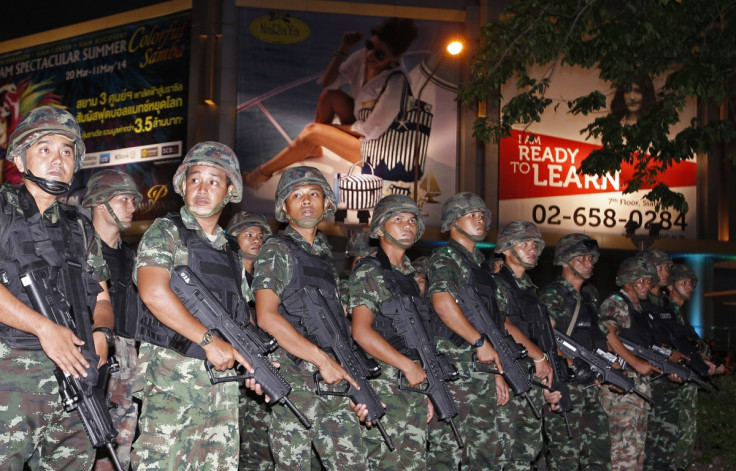Thailand Economy Dodges Recession Despite Military Coup

Thailand's economy has dodged the threat of recession, despite months of political turmoil that ended with a military coup in May.
The Thai economy grew by 0.9% in the second quarter of 2014, following a 1.9% drop in the first, according to the National Economic and Social Development Board (NESDB), Thailand's central bank. Two consecutive quarters of falling GDP is the technical definition of a recession.
The rise in Thai GDP came off the back off greater spending in the private and public sectors, as well as higher exports. Consumer and business confidence is also rising as concerns over the coup begin to relax.
On 22 May, the Thai military put an end to several months of protests, both in favour of and against the government, in which there had been riots on the streets, when it seized control of the country in a bloodless coup.
Non-violent revolution
Army chief General Prayuth Chan-ocha announced the takeover in a statement broadcast on national television. He imposed a curfew, suspended all media broadcasts other than the military's, dissolved the parliament and got rid of the constitution. But he also promised elections within a year.
"Growth is set to pick up further in the coming quarters, but it will take time for the recovery to gain a firmer footing," said Krystal Tan, an Asia economist at Capital Economics.
"The junta has made spurring the Thai economy one of its top priorities since coming to power. For instance, its moves to delay tax hikes, accelerate budget disbursements and clear the way for investment approvals to resume should help support domestic demand."
The NESDB has cut its growth forecast for the economy to between 1.5% to 2%, down from 1.5% to 2.5%.
© Copyright IBTimes 2025. All rights reserved.






















